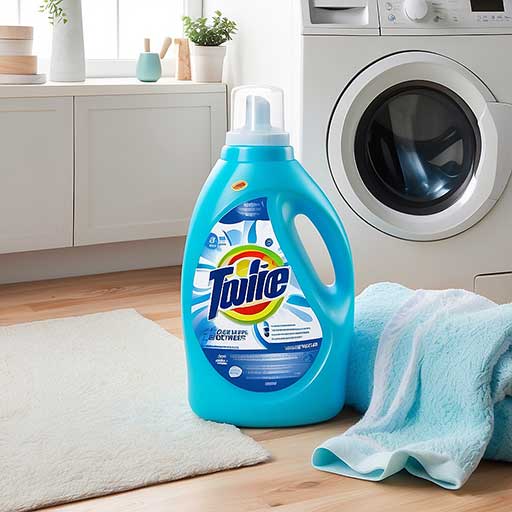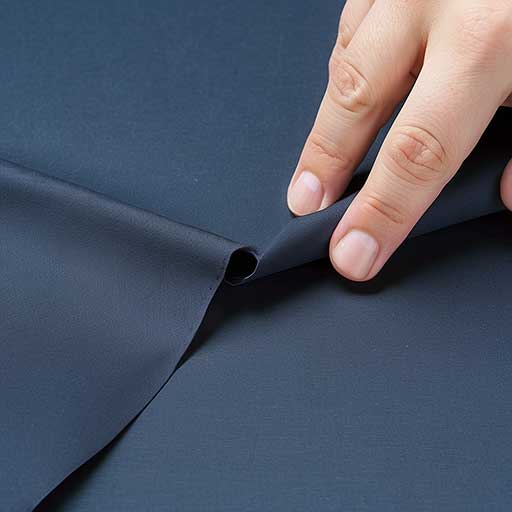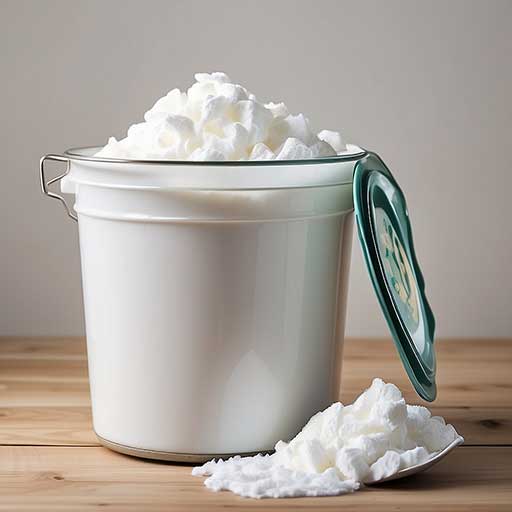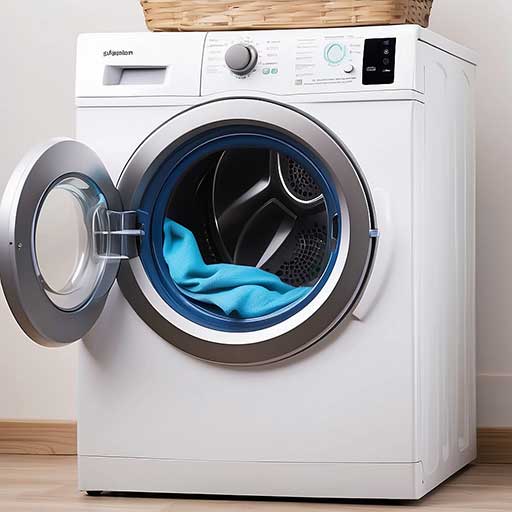How to Soften Clothes Without Fabric Softener?
One way to soften clothes without fabric softener is by using white vinegar. Add 1/2 cup of white vinegar in the rinse cycle and let it soak for a few minutes before rinsing out. This will help break down any detergent residue or hardness left on the clothing, leaving them feeling softer and fresher.
You can also add baking soda to your washing machine with your laundry detergent to help soften fabrics naturally. Baking soda helps reduce static electricity, neutralizes odors and makes fabrics feel softer. Another option is adding some salt into the water before you begin the wash cycle; this will increase water’s alkalinity which helps reduce stiffness of fabric fibers.
Finally, try line drying your clothes instead of using a dryer as this method avoids heat damage that may cause garments to become stiffer over time.
- Vinegar: Add a cup of white vinegar to the rinse cycle when washing your clothes
- The vinegar will help soften the fabric fibers and reduce static cling without using fabric softener
- Baking Soda: For particularly stiff items, add one-half cup of baking soda to the wash cycle with your detergent for extra softening power
- Wool Dryer Balls: After drying your clothing on low heat, throw in two or three wool dryer balls into the dryer along with the damp clothes for additional softness and reduced static cling without any chemicals added to your laundry routine
- Hang Clothes Outside :Hang freshly washed clothes outside on a breezy day to allow them to naturally air out and become softer as they are exposed to fresh air and sunshine instead of traditional fabric softeners that contain potentially harsh chemicals
What Can I Use Instead of Fabric Softener?

Fabric softener is a great way to keep your clothes feeling soft and smelling nice. However, if you’re looking for an alternative solution, there are several natural products that can be used in place of fabric softener. White vinegar is a highly effective fabric softening agent; simply add 1/2 cup to the rinse cycle during washing.
Baking soda also works well when added to the wash; use 1/4 cup per load. You can even make your own homemade fabric softener using ingredients such as lemon juice or essential oils combined with water in a spray bottle. Other natural alternatives include wool dryer balls, which help reduce static electricity and soften fabrics without harsh chemicals, as well as air-drying your laundry outdoors on sunny days.
How Do You Soften Clothes in the Washer Without Fabric Softener?

Using fabric softener is a great way to soften clothes, but if you’re looking for an alternative method that doesn’t include chemicals, there are several other ways to get the same result. One of the easiest and most affordable methods is to add ½ cup of baking soda or white vinegar during the rinse cycle. Baking soda will not only help soften fabrics, but it also brightens whites and reduces odors.
White vinegar helps remove detergent residue from your clothing while also making them softer. You can also add a few drops of essential oil in with either one to give your laundry a pleasant scent. If you have hard water, adding salt can help reduce buildup on fabrics and make them softer as well.
Lastly, you can try using wool dryer balls instead of fabric softener sheets in your dryer; they absorb moisture from clothes and decrease drying time so that when items come out of the dryer they are much softer than before!
How Can I Make My Clothes Softer?

One way to make your clothes softer is by adding a fabric softener when washing them. Fabric softeners are designed to help reduce static cling and soften the fibers of fabrics, making them feel smooth and comfortable on your skin. Another option is to add half a cup of white vinegar during the rinse cycle as it will help break down residues from detergents that can cause stiffness in clothing.
You can also try using distilled water instead of tap water if you have hard water or minerals in your area which can leave deposits on clothing, causing it to become stiffer over time. Finally, consider air-drying your clothes whenever possible as this helps avoid shrinkage which could make items uncomfortable or ill-fitting.
How Do You Break down Stiff Fabric?

Breaking down stiff fabric can be a tricky process, but it doesn’t have to be. The key is to start with the right techniques and use appropriate products. One way to break down stiff fabric is by pre-washing it in a large bucket or sink with laundry detergent.
This will help soften up the fibers before further processing. Additionally, you can also try soaking the fabric in hot water and adding some hair conditioner or fabric softener, which can help loosen up any stubborn fibers. Finally, if all else fails, you can always run your fabric through an industrial steamer machine that applies high levels of heat and moisture to the material – this should effectively break down even the most stubborn fabrics!
Natural Fabric Softeners: 18 Ways to Soften Fabric Naturally
Fabric Softener Substitute Homemade

Homemade fabric softeners are a great way to reduce your environmental impact while still achieving the same results as store-bought products. All you need is some white vinegar, baking soda, and essential oils to make your own fabric softener at home. Adding 1 cup of white vinegar during the rinse cycle of your washing machine will help soften fabrics, reduce static cling and leave clothes smelling fresh.
Baking soda can be added with detergent to give fabrics an extra lift in cleaning power. Additionally, adding 10 drops of essential oil such as lavender or lemon helps provide natural fragrance without any synthetic chemicals!
How to Soften Clothes in Washing Machine

If you’re looking for a way to soften your clothes without using fabric softener, you can use the washing machine itself. Most modern machines have a setting specifically designed for this purpose. Simply select the “Extra Rinse” option and add about half of the usual amount of detergent.
This will help to reduce any excess residue that could be making your laundry stiffer than it should be. After completing the cycle, remove your items promptly and hang them on a line or a rack to dry – they’ll feel noticeably softer!
How to Soften Clothes With Baking Soda
If you’re looking for an all-natural way to soften your clothes, baking soda can be a great solution. Baking soda is not only affordable and easy to use, but it also works as a natural fabric softener by helping to break down the tough fibers in clothing. To soften your clothes with baking soda, simply add ½ cup of baking soda to your regular laundry detergent before washing.
The baking soda helps reduce static cling and makes fabrics feel softer and smell fresher!
How to Soften Clothes With Fabric Softener

Fabric softener is an effective way to soften your clothes and make them feel softer, fresher, and fluffier. To use fabric softener, simply add the recommended amount of liquid or sheets to the washer before you start your laundry cycle. For best results, consider using both fabric softener sheets in the dryer and liquid fabric softener during washing.
Depending on how often you do laundry and the type of fabrics you’re laundering, it may be necessary to use more or less of either product for optimal results.
Conclusion
This blog post has provided a great overview of how to soften clothes without fabric softener. From using vinegar and baking soda, to natural methods like hanging on the line or adding dryer balls, it is clear that there are many ways to keep your laundry soft and fresh-smelling without relying on chemical fabric softeners. With all of these options available, you can find one that works best for you and your family while still saving money in the long run!

Hi, Musette Beaulieu here. Being a full time housewife makes me a geek for washing and drying clothes. Who doesn’t love fresh smelled clothes? Carry on with me, I hope you get what you seek in this clothes drying journey.
